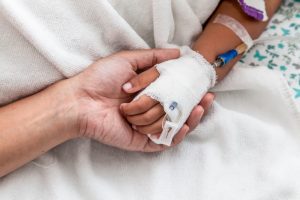Researchers one step closer to finding treatment
A new University of Queensland (UQ) clinical trial has found a drug developed in the United States is helping to reduce seizures in Australian children with epilepsy.
The trial took place at the Lady Cilento Children’s Hospital and involved researchers from the Neurosciences and Dietetics Department.
What were the results?
The trial found almost 50 per cent of children involved showed a reduction in seizures while taking triheptanoin – a treatment originally developed for rare metabolic disorders, for example, fatty acid oxidation disorders.
According to UQ School of Biomedical Sciences Associate Professor Karin Borges, the key to preventing and recovering from these seizures was energy.
“If you have less energy in your brain cells, you are more likely to have a seizure and you will find it harder to recover,” Dr Borges said.
“Once metabolised, triheptanoin enters the brain and helps with energy production.
“Patients did not experience any of the typical side effects of anti-seizure medication such as tiredness, behavioural disturbances or severe rashes. This indicates the drug could be safe and tolerable in children.”
How common is epilepsy in children?
Epilepsy is the most common brain disorder in children. It is debilitating for sufferers and is unfortunately, very difficult to treat.
“Approximately 45 per cent of children experience uncontrolled seizures despite the availability of a variety of medications,” Dr Borges said.
“Even on medication, 30 per cent of children will find no seizure relief at all.”
Current treatment for epilepsy typically involves following a very strict ketogenic diet high in fat and low in carbohydrates.
“People following this diet are required to weigh their food and restrict their caloric intake, leading to side effects including hunger and lack of energy,” Dr Borges said.
“My team wants to find a straight-forward approach to managing this illness, so patients do not have to follow such a restrictive diet.”
To discover which types of epilepsy respond best to treatment, Dr Borges said larger trials of triheptanoin were needed.





